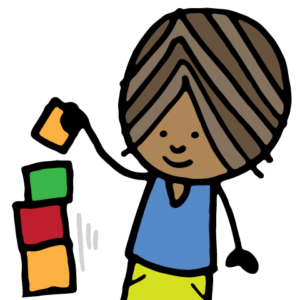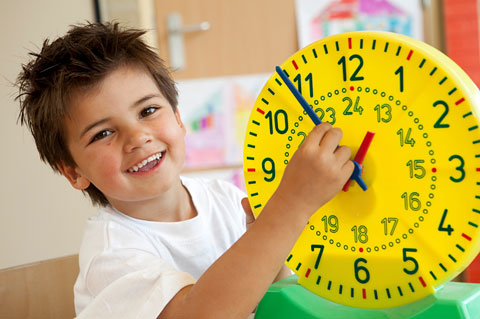STEAM (science, technology, engineering, arts, and mathematics) learning activities provide opportunities for young children to develop skills across developmental domains. This tool kit provides ideas and resources to help you plan engaging and developmentally appropriate STEAM activities for young children. Begin with the “Getting Started” tab to find out how children learn about their world through STEAM experiences. Then, click on the tab for each individual component of STEAM learning for more ideas.
Getting Started
STEAM learning provides children hands-on opportunities to discover their world. For example, play is a pathway for STEAM exploration. This play can be messy yet full of rich possibilities for learning.

Tip Sheets:
Resource List: Explore STEAM with Young Child
Blogs:
Podcast: Process Play and STEAM: Getting Started
Web Resource: Learning – Play Scotland
Science
Science exploration offers young children a chance to explore and discover the world around them. This includes discovering the living world and the physical world. Young children have many opportunities to make predictions and see whether their theories about the world are correct. This learning can take place at home, in the classroom, and even on the playground. Conversations about science concepts are a great way to fit science learning into your day. These conversations can be part of activities such as cooking, building with blocks, and exploring the outdoors.

Tip Sheets:
- CSI: Child Scientist Investigates!
- Fun at Home with Preschoolers: Play with Light & Shadow
- Get Growing: Learning about Seeds
- Get Growing: Planning a Garden with Young Children
- Get Growing: Planters and Preschoolers
- Make Room for Blocks!
- Natural Illinois: Butterflies and Moths
- Natural Illinois: Frogs and Toads
- Natural Illinois: Insects
- Natural Illinois: Leaves Are All Around
- Natural Illinois: Mammals
- Natural Illinois: Rock On!
- Natural Illinois: The Trees You See
- Out and About with Preschoolers: Science in the “Built Environment”
- Out and About with Preschoolers: Sunshine Science
- Playground Physics: Hang in There!
- Playground Physics: On a Roll!
- Playground Physics: Watch for Falling Objects!
- Predicting: Helping Preschoolers Look Ahead
- Say Yes to the Mess! Play with Rocks
- Say Yes to the Mess! Snow Time
- Say Yes to the Mess! Water Works
- Things to Do While You’re Waiting: Curious Young Scientists
- Things to Do While You’re Waiting: Science
Videos:
- Exploring the Sensory Table
- Look at It Go!
- Looks Swampy
- Lots of Dandelions
- Magnets and Cars
- Observing Chickens on the Playground
- One Morning at the Construction Table
- One Morning in the Block Area
- Shaving Cream
- Straw Painting
- Talking about Waterslide Models
- Where the Chick Came From
- You’ve Got Blue Hands
Blogs:
Adapting Lesson Plans to Meet IELDS Benchmarks:
Technology
Young children encounter technology throughout their everyday routines. Technology tools can provide hands-on learning opportunities when educators and caregivers purposefully include technology in activities. Browse Everyday Early Intervention: Technology is Everywhere and discover helpful tips for using technology with young children to search for music for dancing and for videos or photos online that answer children’s questions. You also can use technology tools such as photography and audio or video recordings to document children’s learning. Consider teaching older children how to take photos and videos of their creations as they learn to use phones or tablets.

Resource List: The Project Approach: Display and Documentation Techniques
Q&A: Age-Appropriate Play for Young Children
Blogs:
Engineering
Young children are creators. They are often observed dreaming up inventions using blocks, boxes, and other items. Through play, budding engineers show us their growing understanding of the world. Young children may wonder how simple objects and structures are built. These questions are the beginning of their exploration as budding engineers. Educators and caregivers can provide young children with opportunities to explore engineering through purposeful play.

Tip Sheets:
Videos:
Blog: Busy with Blocks
Project Example: Up Up and Away: The Airplane Project
Arts
The arts provide important opportunities for young children to show what they know about the world around them. Young children express their ideas and feelings through visual art, music, drama, and movement. The arts can be a pathway to other STEAM learning areas. For example, the visual arts allow children to use the principles of mathematics to observe and create patterns. Young children employ engineering principles when they are building structures with blocks to represent a castle or house in a pretend story. Digital technologies, such as videos or audio recordings, can be used when children are recording the stories they develop during dramatic play.

Tip Sheets:
- Drama and Young Children
- Out and About with Preschoolers: Close Up with Visual Arts
- Out and About with Preschoolers: Dancing on the Sidewalk
- Out and About with Preschoolers: Make Some Music
- Out and About with Preschoolers: Visual Arts for Everyone
- Sing, Play, and Hear: Music’s in the Air
- Tech Time for Young Children
- Things to Do While You’re Waiting: Art Is All Around
- Things to Do While You’re Waiting: Art Works!
- Things to Do While You’re Waiting: Math is Everywhere
- Things to Do While You’re Waiting: Music and Movement
- Things to Do While You’re Waiting: Music, Sound, and Movement
Videos:
Blogs:
Mathematics
Children discover mathematics concepts through everyday routines and play. Playing games is one of the best ways young children learn these concepts. Young children encounter numbers during everyday routines and play. You may have seen young children count blocks to compare the height of towers, count crackers on their plate, or count the number of people playing on a playground. As they talk and count with peers and caregivers about the things they are exploring and playing with, they continue to develop more understanding of how numbers and their operations work. In addition, conversations about patterns, shapes, and measurement are a wonderful way to explore math concepts. These conversations can be inspired by everyday objects such as glass window panes, bricks on a building, or the shapes and colors of fruits or vegetables in a salad.

Tip Sheets:
- Counting Up, Down, and All Around!
- Discover Shapes in Many Places
- Fun at Home with Preschoolers: Let’s Measure
- Making Sense of Numbers
- Math Sense: Learning about Coins
- Path to Math: Beginning Numbers
- Path to Math: Classification
- Path to Math: Geometric Thinking for Young Children
- Path to Math: Measurement with Young Children
- Path to Math: More Numbers
- Path to Math: More Word Problems for Preschoolers
- Path to Math: Real Graphs for Preschoolers
- Path to Math: Word Problems for Preschoolers
- Sorting, Classifying, and Organizing
- Things to Do While You’re Waiting: Math
- Things to Do While You’re Waiting: Math Is Everywhere
Videos:
- Bethany Draws a Wheel
- Comparing Firefighter Coats
- Counting Chickens
- Counting Crackers
- Dual Language Use During Choice Time
- Magnets and Cars
- Mix and Count
- One Morning in the Block Area
- Roland Draws a Garden
- Sara Measures
- “She Goes First”: Cooperative “Housekeeping” Play
- Talking about Waterslide Models
Adapting Lesson Plans to Meet IELDS Benchmarks:
Web Resources
-
Everyday Early Intervention: Technology Is Everywhere
Source: Illinois Early Intervention Clearinghouse
This tip sheet offers ideas for developmentally appropriate ways to incorporate technology into daily routines with young children.
-
Play Scotland
Source: Play Scotland
Play Scotland is the lead organization for the development and promotion of play in Scotland.


